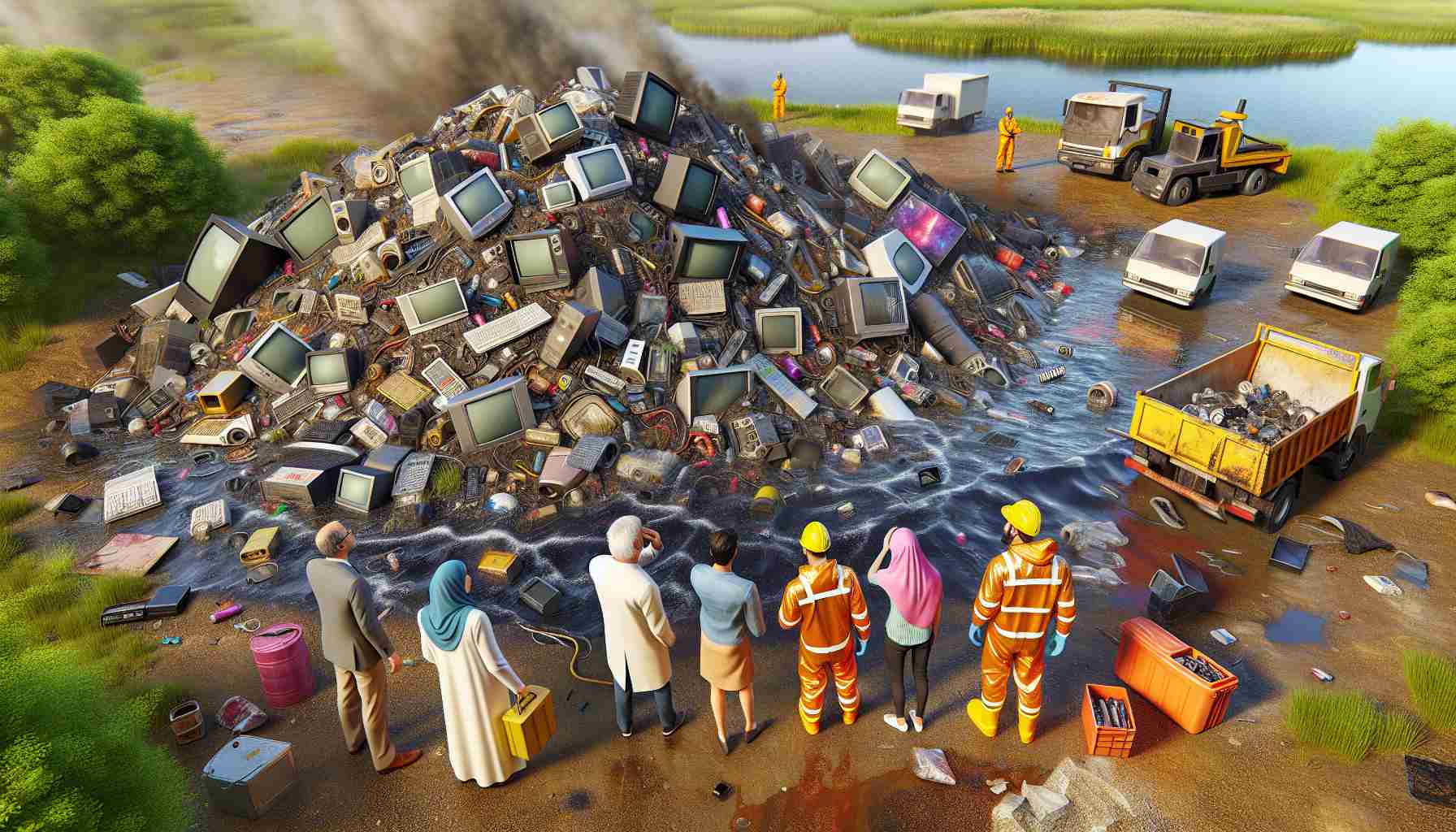The rising concern over electronic waste has led to increasing awareness regarding potential cybersecurity threats associated with discarded devices. A recent short film titled “E-Waste Recycling” highlights the hidden dangers that come with neglecting proper disposal methods for used electronics.
As people upgrade their devices, they often overlook the sensitive information stored within them. Devices such as smartphones, laptops, and tablets can contain a wealth of personal data, including contacts, emails, and even financial information. When these items are discarded without proper data cleansing, they can fall into the wrong hands, leading to identity theft and other cybercrimes.
Consequently, the narrative portrays individuals not just as casual recyclers, but as potential vulnerabilities within a larger network. The story emphasizes the importance of being vigilant and taking extra steps to protect digital identities by ensuring that all personal data is securely wiped before recycling or disposing of any device.
Educational initiatives and informative campaigns are crucial in fostering a better understanding of e-waste management. By spreading awareness about how to dispose of electronic gadgets responsibly, individuals can mitigate the risk of falling victim to cyber threats. Promoting safe practices in electronic waste disposal is essential for safeguarding personal information in our increasingly digital world.
Understanding the Risks of Improper E-Waste Disposal
Improper disposal of electronic waste (e-waste) poses significant environmental, health, and security risks. As the volume of e-waste continues to grow, driven by rapid technological advancements and increasing consumerism, the implications of inadequate management become ever more alarming. This article delves deeper into the dangers of irresponsible e-waste disposal, exploring crucial questions, challenges, and the complexities surrounding the issue.
What is e-waste, and why is it a problem?
E-waste encompasses discarded electronic devices such as computers, televisions, smartphones, and printers. This waste is problematic because it contains hazardous substances like lead, mercury, and cadmium, which pose risks to both human health and the environment when not disposed of properly.
What are the key challenges in e-waste disposal?
One of the primary challenges in managing e-waste is the lack of proper recycling facilities. Many regions lack the infrastructure to handle e-waste responsibly, resulting in illegal dumping or incineration. Additionally, different countries have varying regulations regarding e-waste, leading to potential loopholes that may be exploited by irresponsible consumers and businesses alike.
How does improper e-waste disposal impact the environment?
When e-waste is improperly disposed of, toxic substances can leach into the soil and groundwater, affecting local ecosystems and communities. For example, lead from cathode-ray tubes can contaminate soil, while improper burning of e-waste can release hazardous fumes into the atmosphere, contributing to air pollution.
What are the advantages and disadvantages of recycling e-waste?
Recycling e-waste has numerous advantages, including resource recovery and environmental conservation. Valuable materials such as gold, silver, and copper can be reclaimed from electronics, reducing the need for virgin mining and the associated environmental degradation. Recycling also helps to mitigate the harmful effects of e-waste on the environment.
However, there are disadvantages as well. Not all recycling processes are eco-friendly; some might not have the appropriate technology to safely extract materials, leading to the release of toxic chemicals. Moreover, there are concerns about the transportation of e-waste to developing countries, where it may be processed in unsafe working conditions.
What can individuals do to promote responsible e-waste disposal?
Individuals can play a significant role in promoting e-waste recycling by:
1. Educating themselves about local e-waste recycling options and participating in community programs.
2. Wiping personal data from devices before disposal to protect their information.
3. Opting to donate or sell functional electronics instead of discarding them.
4. Supporting companies that adopt sustainable practices in their product lifecycle management.
Conclusion
As the world grapples with the intricacies of e-waste management, awareness and action are key to addressing this pressing issue. Society must embrace responsible practices in the procurement, usage, and disposal of electronic devices to safeguard not only personal data but also the environment.
For further information on the importance of managing e-waste responsibly, visit EPA Electronics Recycling.























